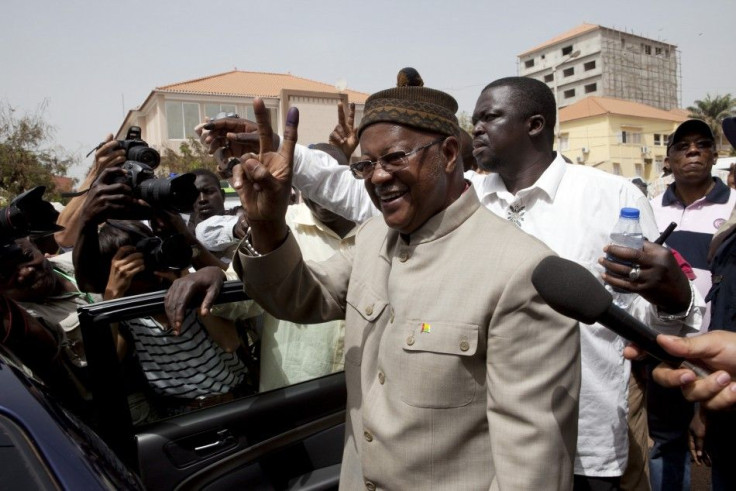Guinea-Bissau Victim of Another Coup

Guinea-Bissau, a small country on the west coast of Africa between Senegal and Guinea, is once again victim of a military coup d'état.
The tiny African nation has already suffered through three coups and a presidential assassination in 2009.
On Thursday, explosions sounded across the capital, Bissau, and near Prime Minister Carlos Gomes Junior's residence as grenades were thrown towards the house.
Radio and national TV communications were cut off and gunfire began immediately after.
There was panic. Women were running There were rockets being launched, and the soldiers were shooting with guns mounted on their trucks, said Edmond Ajoye, a resident of Bissau, according to TIME World.
The soldiers took downtown, he continued, The shooting lasted from 7 p.m. until 9 p.m. They then went from embassy to embassy to make sure that the politicians couldn't seek refuge there.
The whereabouts of both Prime Minister Gomes and the country's interim president, Raimundo Pereira, remain unknown as of now, although the Associated Press (AP) reports that Gomes has indeed been arrested.
The West African consortium, the Economic Community of West Arican States (ECOWAS), has condemned and rejected the military coup.
It's sad that after the example of Senegal, where the elections finished so well, that we have, after Mali, a new forceful intervention in Guinea-Bissau, Ivory Coast's Foreign Minister Daniel Kablan Duncan told BBC.
ECOWAS has dealt with the Mali coup since March, applying international pressure to force coup leader, Captain Amadou Sanogo, to surrender power.
Thanks to an agreement negotiated between ECOWAS and Mali's military, Captain Sanogo has agreed to hand over power to an interim, civilian government.
As for Guinea-Bissau,it may become an important oil producer.
Noble Energy announced last year that it would begin exploring waters off its shores through a joint venture, as stated on the Department of State's website.
Because of high costs, the development of petroleum, phosphate, and other mineral resources is not a near-term prospect. However, unexploited offshore oil reserves may possibly provide much-needed revenue in the long run, US State Dept said on its website
However, the potential West African oil source, weakened by repeated power struggles, now follows Mali's lead towards lawlessness.
Disrupting the Presidential Campaigns
The military coup in Guinea-Bissau comes a day before the commencemnent for the presidential campaign.
Since former President Malam Bacai Sanha's death in January, Guinea-Bissau has been governed by an interim government.
The first round of voting resulted in Prime Minister Gomes' victory. Although he was favored to win, the military and second-place finisher, former President Kumba Yala, claimed the elections were rigged.
Yala also said that he would boycott the run-off vote on April 29 and warned other candidates against campaigning.
An unidentified military official dispatched a communique stating that Gomes was in fact planning to allow Angolan troops to attack Guinea-Bissau's military forces, according to TIME World.
The Military Command does not want power but it was forced to act in this way to defend itself from the diplomatic maneuvers of the Guinea-Bissau government, which aims to annihilate the (country's) armed forces using foreign military force, the communique said, reported the Portuguese news agency Lusa.
Last month, Angola did indeed send about 200 troops to Guinea-Bissau in the effort to reform the military establishment as part of a bilateral agreement between the two countries' military authorities.
West African Narcostate
In addition to political instability, Guinea-Bissau has recently been plagued with drug trafficking.
The West African country has become a transit point for drug dealers transporting cocaine from Latin America to Europe.
The drug traffickers land their small, twin-engine planes carrying drugs on the country's islands and from there transfer the drugs for sale in Northern Europe, reported the New York Times (NYT).
The cocaine trade has grown into a political problem as drug traffickers are believed to be bribing and paying off government and military officials.
© Copyright IBTimes 2024. All rights reserved.











